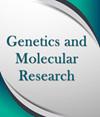2020年11月至2021年7月巴西Goiás州SARS-CoV-2流行变体检测Illumina AmpliSeq方案优化
IF 0.2
Q4 GENETICS & HEREDITY
引用次数: 0
摘要
SARS-CoV-2大流行表明需要进行基因组流行病学监测。迄今为止,已经应用了各种方法,包括宏基因组方法和基于扩增子的高通量测序平台。我们使用SARS-CoV-2群落面板(Illumina AmpliSeq)调整了基于扩增子的测序的一些细节,并使用MiSeq平台进行了额外的修改,以实现平衡和高质量的测序。修改后的方案用于检测巴西戈亚斯州流行的SARS-CoV-2变体。最初,于2020年11月和2021年2月从巴西戈亚斯州的15名患者的拭子样本中获得RNA样本,以验证方案步骤。根据AmpliSeq对Illumina工作流程进行修改后制备文库;随后,我们分析了2020年12月至2021年7月在Goias州采集的305份阳性样本。为了改进方案,我们取消了用DNAse处理样品的需要,并证明了库稀释前后用qPCR定量的重要性。在生物分析仪分析的样品中未观察到碎裂模式。文库返回用于基因组组装和变异检测的测序结果。我们能够从318个样本中组装SARS-CoV-2基因组,这些样本用于鉴定在这几个月里在戈亚斯流行的13种冠状病毒变体。检测到令人关注的变异,如Alpha (B.1.1.7)、Gamma (P.1)和Delta (B.1.617.2);后者最初于2021年4月在戈亚斯发现。我们开发的工作流程修改已成功应用于检测SARS-CoV-2变体,实现了高覆盖率的基因组组装,可用于增加基因组序列的数量,并有助于巴西的流行病学监测。本文章由计算机程序翻译,如有差异,请以英文原文为准。
Research Article Optimization of Illumina AmpliSeq protocol for SARS-CoV-2 and detection of circulating variants in Goiás State, Brazil from November 2020 to July 2021
The SARS-CoV-2 pandemic has demonstrated the need for genomic epidemiology surveillance. To date, various methodologies have been applied, including metagenomic approaches and amplicon-based sequencing associated with high-throughput sequencing platforms. We adapted some details in amplicon-based sequencing using a SARS-CoV-2 community panel (Illumina AmpliSeq), with additional modifications for balanced and high-quality sequencing using the MiSeq platform. The modified protocol was used to detect circulating SARS-CoV-2 variants in Goias state, Brazil. Initially, RNA samples were obtained from swab samples from 15 patients from the state of Goias, Brazil, in November/2020 and February/2021 to validate protocol steps. The libraries were prepared following AmpliSeq for Illumina workflow with modifications;subsequently, we analyzed 305 positive samples collected from the state of Goias from December 2020 to July 2021. For protocol improvement, we removed the need to treat samples with DNAse and demonstrated the importance of quantification by qPCR before and after library dilution. No fragmentation pattern was observed in the samples analyzed with Bioanalyzer. The libraries returned sequencing results that were used for genome assembly and variant detection. We were able to assemble SARS-CoV-2 genomes from 318 samples, which were used to identify 13 variants of coronavirus circulating in Goias throughout those months. Variants of concern, such as Alpha (B.1.1.7), Gamma (P.1) and Delta (B.1.617.2) were detected;the latter was detected at first in Goias in April 2021. The modifications in the workflow we developed were successfully applied to detect SARS-CoV-2 variants, resulting in high coverage genome assembly, and they can be used to increase the number of genome sequences and aid in epidemiological surveillance in Brazil.
求助全文
通过发布文献求助,成功后即可免费获取论文全文。
去求助
来源期刊

Genetics and Molecular Research
生物-生化与分子生物学
CiteScore
1.00
自引率
25.00%
发文量
7
审稿时长
3 months
期刊介绍:
Genetics and Molecular Research (GMR), maintained by the Research Foundation of Ribeirão Preto (Fundação de Pesquisas Científicas de Ribeirão Preto), publishes high quality research in genetics and molecular biology. GMR reflects the full breadth and interdisciplinary nature of this research by publishing outstanding original contributions in all areas of biology.
GMR publishes human studies, as well as research on model organisms—from mice and flies, to plants and bacteria. Our emphasis is on studies of broad interest that provide significant insight into a biological process or processes. Topics include, but are not limited to gene discovery and function, population genetics, evolution, genome projects, comparative and functional genomics, molecular analysis of simple and complex genetic traits, cancer genetics, medical genetics, disease biology, agricultural genomics, developmental genetics, regulatory variation in gene expression, pharmacological genomics, evolution, gene expression, chromosome biology, and epigenetics.
 求助内容:
求助内容: 应助结果提醒方式:
应助结果提醒方式:


